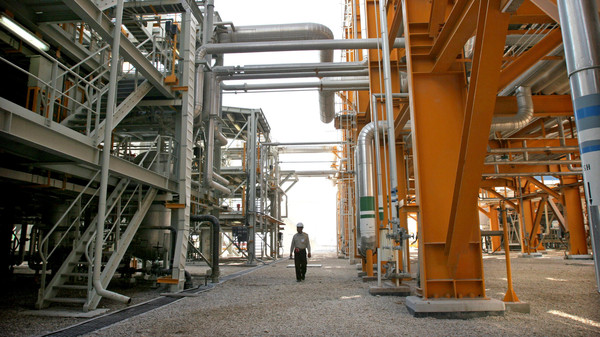 Iran resumed gasoil imports this quarter after a gap of several months on rising consumption of heating oil during winter, but the arrivals are unlikely to continue as the demand is only seasonal, industry sources said on Monday.
Iran resumed gasoil imports this quarter after a gap of several months on rising consumption of heating oil during winter, but the arrivals are unlikely to continue as the demand is only seasonal, industry sources said on Monday.
Iran’s imports are expected to have a muted impact on Asian gasoil margins as the volumes are too small and they come at a time when the region is flooded with supply from new capacity in the Middle East and China, traders said.
“Gasoil imports have been done due to seasonal conditions and they will certainly not continue,” oil ministry news agency Shana quoted Mohsen Qamsari, the director of international affairs of the National Iranian Oil Co, as saying. Only small volumes have arrived over the past two months, Qamsari said.
A source close to the matter, who declined to be named as he was not authorised to speak to media, said Iran was expected to import about 2-3 cargoes of high sulphur gasoil this year.
“The imports might be similar to last year and are not as considerable as they used to be about 2 to 3 years ago, as production is up,” he said.
Iran has had to increase its refining capacity over the past few years due to Western efforts to prevent it from importing fuel as part of sanctions over Tehran’s nuclear activities.
Iran hopes to boost its oil refining capacity to 3 million barrels per day by 2018 from 1.9 million now with the opening of new refineries as the OPEC member seeks to reduce its dependency on imports of oil products.
The gasoil cargoes coming to Iran are likely from the Middle East, a second source said, without giving any further details.
Each cargo to Iran, which uses gasoil to generate power, is likely to contain about 60,000 tonnes of gasoil, a trader said.
Australia, Asia-Pacific’s top gasoil importer, imports about 800,000 to 1 million tonnes a month every month.
Qamsari also said that Iran has been exporting 500,000 tonnes a month of fuel oil and 100,000 tonnes a month of liquefied petroleum gas.
Talks between Iran and six powers, the United States, China, Russia, Britain, France and Germany, failed last month to resolve a 12-year stand-off over Tehran’s nuclear ambitions as the sides agreed to extend the talks till June 2015.
By Al Arbiya
The Iran Project is not responsible for the content of quoted articles.

 QR code
QR code